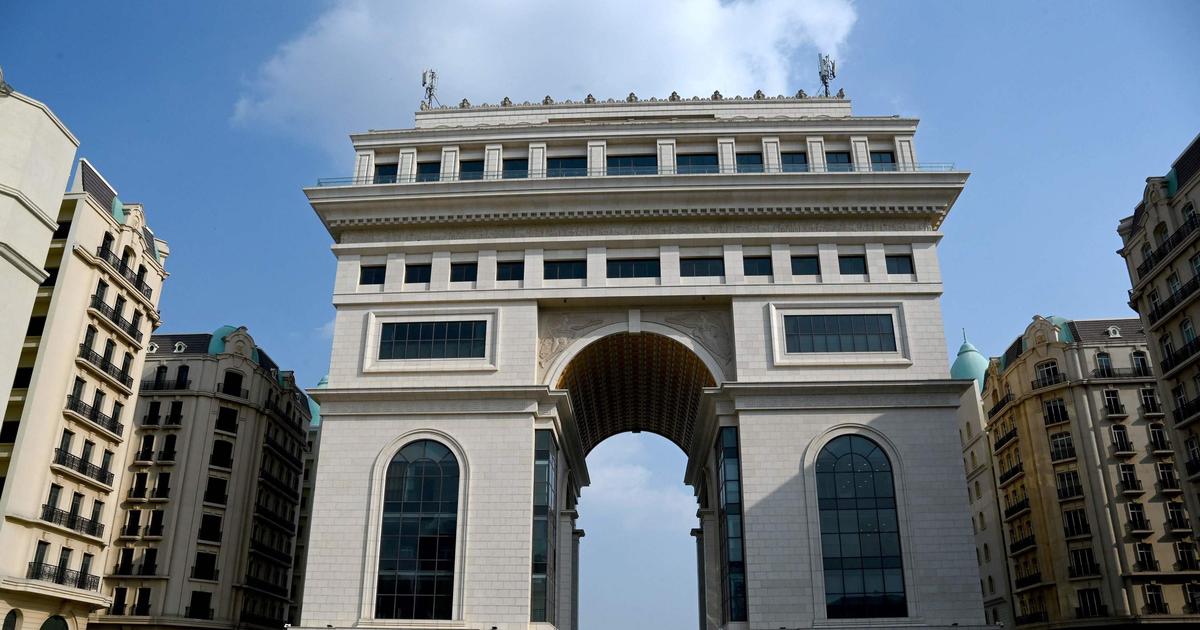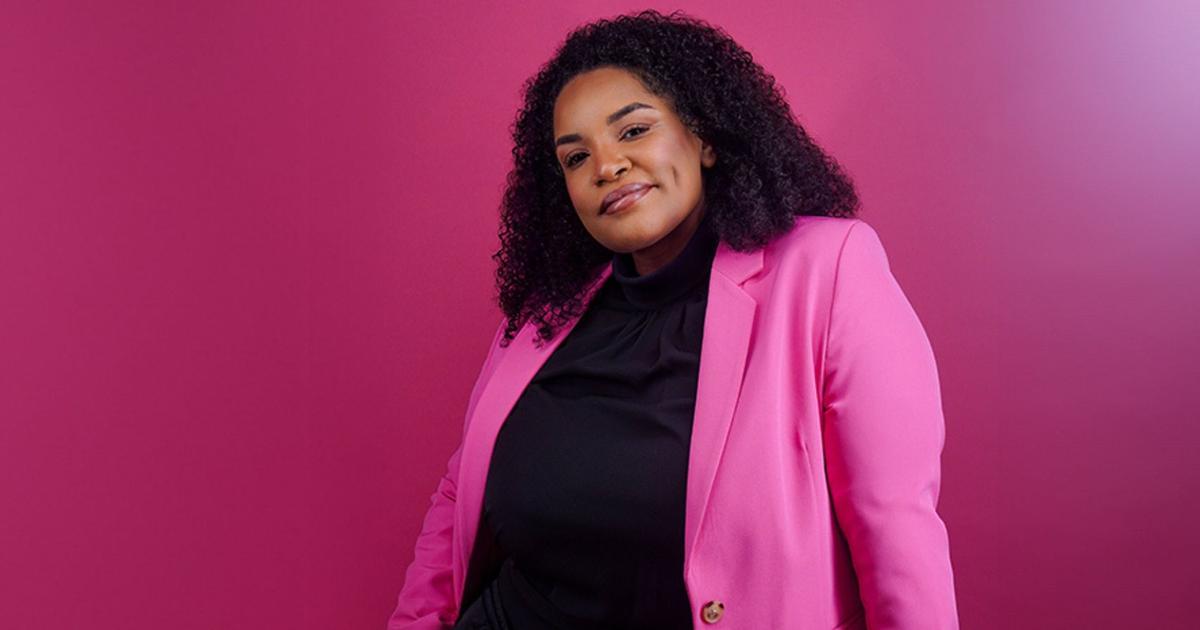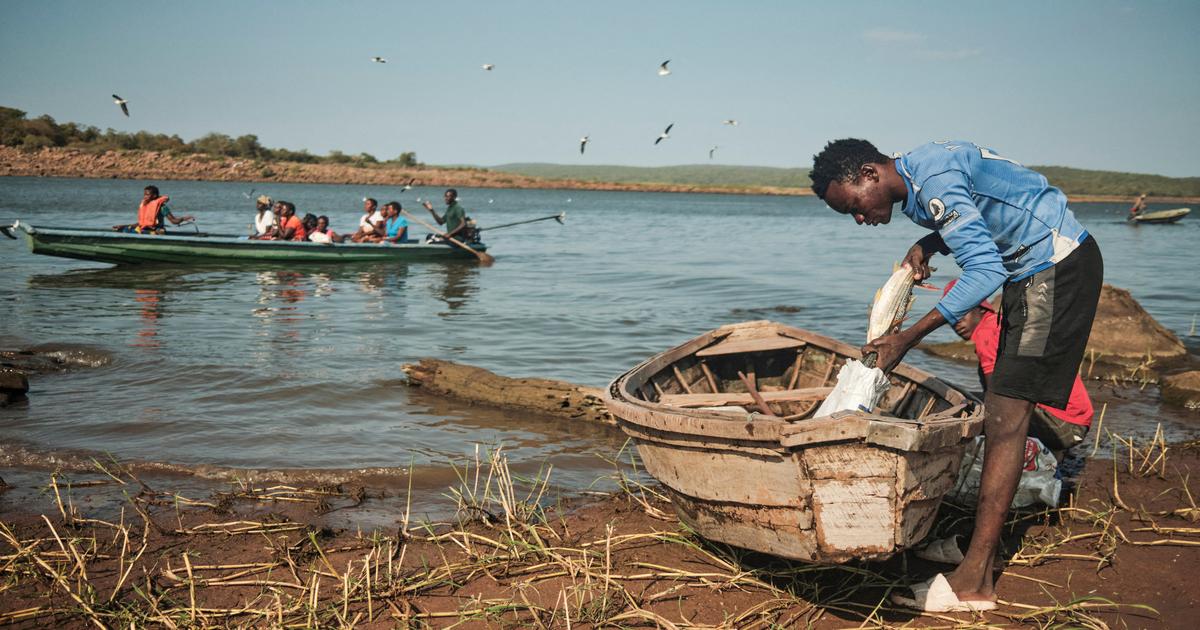Icon: enlarge
Two women in Phnom Penh try human hair extensions: The hair often comes from poor women in the country
Photo:
Benjamin Filarski
It's just hair, say the traders with the scissors.
But everyone knows that's not true.
For example, there is Prak Sohka, 42 years old, she lives in the countryside in Cambodia, 170 kilometers from the capital, Phnom Penh.
She says her hair has won many beauty pageants and that she uses a blend of coconut oil and a special flower to condition it.
Prak has a photo in her apartment showing her at the age of 18 with long black hair.
Shortly afterwards, she says, a woman approached her and offered the equivalent of 40 euros for Prak's hair.
It felt like a fortune at the time.
Then it took another five minutes until the hair was gone and only a few strands were left on Prak's head.
Hair as a source of income
In India or China, the human hair market has long been a billion-dollar business.
In order to meet the great demand, other Asian countries have also started to trade.
Kombodscha, for example, a country in which, according to the World Bank, 4.5 million people live on the poverty line and have to get by on less than two dollars a day.
"Be more beautiful for a better life."
Slogan in a real hair shop in Phnom Penh
In Cambodia, women, especially in the countryside, sell their hair; for them it is the renewable raw material with which they pay the school fees for their children, the food, and the credit for their house.
Photojournalists Louise Pluyaud and Benjamin Filarski did research in Cambodia in February, shortly before the corona crisis.
They met the women in the villages who had already sold their hair two or three times.
Who know the shame and the rumor that it is bad luck if you cut your hair.
They met the women who were looking for new strands of human hair for up to 500 euros in the large markets of Phnom Phen.
Because it made them feel more confident.
Because they hoped to be more successful in their job.
Because men think it's so beautiful.
And they met the dealers who wear T-shirts with the words "Never stop growing" and the words "Be more beautiful for a better life" in the shop window.
Be more beautiful for a better life.
Empowerment or humiliation?
It's not just hair, Pluyaud and Filarski discovered.
Hair is money.
And the hair trade also has something to do with dignity.
When women buy the hair of other women 's heads in order to conform to an ideal of beauty, with the result that the other woman, who has little money, can no longer conform to that ideal - what is that?
A sign of the humiliation of women by Cambodian society for causing women to circumcise each other?
Or is it called empowerment because women earn money that makes them more independent from their husbands and families?
Pluyaud says the women who gave their hair are not victims.
You would know what you are doing.
"They use what they have to create a better future for themselves and their children."
Many were able to implement their plans through this.
It is different with hair customers: They often feel the pressure to meet certain standards that society imposes on women there.
Read the stories of the women who sell their hair and of the large hair markets in Phnom Penh in the photo gallery:
Icon: The mirror
This contribution is part of the Global Society project
What is the Global Society project? Up arrow Down arrow
Under the heading Global Society, reporters from
Asia, Africa, Latin America and Europe
report on injustices in a globalized world, socio-political challenges and sustainable development.
The reports, analyzes, photo series, videos and podcasts appear in the international section of SPIEGEL.
The project is long-term and will be supported by the Bill & Melinda Gates Foundation (BMGF) for three years.
A detailed FAQ with questions and answers about the project can be found here.
What does the funding look like in concrete terms? Up arrow Down arrow
The Bill & Melinda Gates Foundation (BMGF) is supporting the project for three years with a total of around 2.3 million euros.
Is the journalistic content independent of the foundation? Up arrow Down arrow
Yes.
The editorial content is created without any influence from the Gates Foundation.
Do other media have similar projects? Up arrow Down arrow
Yes.
Big European media like "The Guardian" and "El País" have set up similar sections on their news sites with "Global Development" and "Planeta Futuro" with the support of the Gates Foundation.
Have there already been similar projects at SPIEGEL? Up arrow Down arrow
In recent years, SPIEGEL has already implemented two projects with the European Journalism Center (EJC) and the support of the Bill & Melinda Gates Foundation: The "Expedition The Day After Tomorrow" on global sustainability goals and the journalistic refugee project "The New Arrivals", as part of this several award-winning multimedia reports on the topics of migration and flight have been produced.
Where can I find all publications on Global Society? Up arrow Down arrow
The pieces can be found at SPIEGEL on the topic Global Society.







/cloudfront-eu-central-1.images.arcpublishing.com/prisa/66CSJI42DSM5CZI4POOVQBN23A.jpg)

